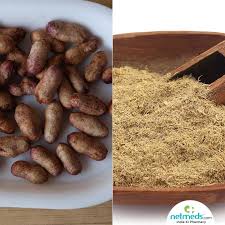
Natural Thyroid Support Using Paneer Phool
Thyroid imbalances are increasingly common in today’s fast-paced lifestyle. From fatigue and weight fluctuations to mood disturbances, thyroid issues can disrupt overall well-being. While conventional medications are essential in many cases, natural remedies have gained popularity for their supportive role in holistic health. One such potent herb from Ayurveda is Paneer Phool (also known as Withania coagulans). Traditionally used to manage blood sugar and digestive health, this herb is now being studied for its potential role in supporting thyroid function. In this article, we explore how Paneer Phool can be a natural ally in thyroid care and how to incorporate it into your wellness routine.
Long Description:
What is Paneer Phool (Withania coagulans)?
Paneer Phool, also known as Indian Rennet, is a medicinal herb used in Ayurveda and Siddha systems of medicine. The dried flowers of this plant are packed with anti-inflammatory, antioxidant, and adaptogenic properties. Traditionally known for managing diabetes, digestion, and immune support, recent insights suggest its potential role in supporting thyroid function naturally.
Understanding Thyroid Health:
The thyroid gland plays a critical role in metabolism, energy production, hormonal balance, and temperature regulation. Thyroid disorders are mainly of two types:
Hypothyroidism (underactive thyroid)
Hyperthyroidism (overactive thyroid)
Symptoms such as fatigue, cold sensitivity, weight gain, constipation, depression, and dry skin are linked to hypothyroidism. Supporting thyroid health involves a mix of medication, dietary changes, stress management, and lifestyle adaptations.
How Paneer Phool Supports Thyroid Function
Adaptogenic Properties:
Paneer Phool may act as an adaptogen, helping the body manage physical and emotional stress — a common trigger for thyroid imbalances.
Reducing cortisol (stress hormone) indirectly supports healthy thyroid hormone production.
Anti-Inflammatory Effects:
Chronic inflammation can interfere with thyroid hormone activity. Paneer Phool’s anti-inflammatory nature helps calm internal systems and supports glandular balance.
Antioxidant Rich:
Oxidative stress is known to damage thyroid cells. Paneer Phool is rich in natural antioxidants that help neutralize free radicals, thereby protecting thyroid tissues.
Immunomodulatory Benefits:
Autoimmune thyroid conditions like Hashimoto’s thyroiditis are increasingly common. Paneer Phool has mild immunomodulatory actions, potentially regulating overactive immune responses.
Digestive Support:
Healthy digestion is essential for hormone synthesis and absorption of key thyroid nutrients like iodine, selenium, and zinc. Paneer Phool promotes gut health, improving nutrient assimilation.
Liver Detox and Hormone Balance:
The liver converts thyroid hormones (T4 to T3). Paneer Phool supports liver detoxification, aiding hormone conversion and metabolic processes.
How to Use Paneer Phool for Thyroid Support
Paneer Phool Water Infusion:
Soak 5–6 dried Paneer Phool flowers overnight in a glass of water.
Strain and drink the water on an empty stomach in the morning.
Follow this routine daily for 4–6 weeks under supervision.
Paneer Phool Tea:
Boil 1 teaspoon of crushed Paneer Phool in 1.5 cups of water for 5–7 minutes.
Strain and drink warm. Optionally, add tulsi or cinnamon for taste and added benefits.
Herbal Blends:
Combine Paneer Phool with Ashwagandha or Triphala for synergistic effects.
Consult an Ayurvedic expert for custom formulations.
Dosage and Safety:
Always start with a small dose.
Avoid overdose, especially during pregnancy or if you are on thyroid medication.
Regular monitoring of thyroid levels is essential when using herbal support.
Diet and Lifestyle Tips to Support Thyroid Naturally
While using Paneer Phool can be beneficial, it should be part of a larger thyroid-friendly lifestyle:
Iodine-Rich Foods: Seaweed, eggs, dairy.
Selenium-Rich Foods: Brazil nuts, sunflower seeds.
Avoid Goitrogens in Excess: Raw cruciferous vegetables like broccoli or cabbage.
Reduce Stress: Yoga, meditation, and deep breathing.
Quality Sleep: Ensure 7–8 hours of uninterrupted rest.
Exercise: Moderate movement like walking, swimming, or yoga helps regulate metabolism.
Scientific Perspective on Paneer Phool
While traditional Ayurvedic texts praise Paneer Phool for its wide range of therapeutic actions, modern science is beginning to investigate its biochemical properties. Studies have shown its antioxidant and hypoglycemic effects, and preliminary data indicate potential for hormonal balance, though more clinical studies are needed specifically for thyroid disorders.
Precautions Before Using Paneer Phool
Not recommended for children or pregnant/breastfeeding women without medical supervision.
Should not replace prescribed thyroid medication.
Regularly check thyroid hormone levels to avoid imbalances.
Consult your doctor or an Ayurvedic practitioner before beginning any herbal protocol.
Conclusion
Paneer Phool presents a promising natural remedy to support thyroid health, thanks to its adaptogenic, anti-inflammatory, and digestive-enhancing properties. While it is not a cure for thyroid conditions, its inclusion in a holistic wellness approach can offer gentle support and improve overall vitality. At Dirghaanshi, we encourage safe, informed use of Ayurvedic herbs like Paneer Phool to restore balance and harmony in the body.













